Speakers
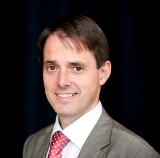
Nordic Innovation encourages innovation in all sectors, builds transnational relationships, and contributes to a borderless Nordic business region.
Ivar H. Kristensen,
Nordic Innovation, Managing Director (Norway)
Ivar H. Kristensen is deeply engaged in mission to stimulate Nordic businesses’ innovation capabilities and create sustainable growth. He also has long political experience. Before entering NICe, Mr. Kristensen was Head of Advisors in a Norwegian IT solutions company, where he also was responsible for introducing the company into the Nordic and European markets.
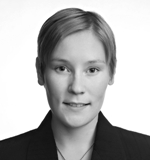
Cities have a very important role in low-carbon development. A long-term strategic commitment to a low-carbon future opens up new possibilities for green growth and sustainable business.
Elli Kotakorpi,
Tampere ECO2 programme, Project Specialist (Finland)
In her presentation Elli Kotakorpi will present the ECO2 – Eco-efficient Tampere 2020 -project and discuss Tampere’s role in advancing green growth and low carbon cities. ECO2- project was launched to develop and promote eco-efficient solutions for city planning, construction, energy production and transportation.
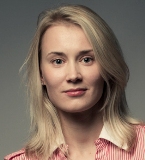
Cities have done a lot to improve the living environment, but very often it cannot reach the people or the wider public. Therefore, it is important to deal with green marketing communications.
Piret Jaani,
University of Tartu (Estonia)
In her presentation, Piret Jaani will introduce the results of her Master’s thesis. She will give an overview of satisfaction with the urban living environment and problems among young people. The City of Tartu has done a lot to improve its urban living environment, but very often this does not reach citizens. This prompted the author to make recommendations to cities on green marketing communications (in the case of the City of Tartu).
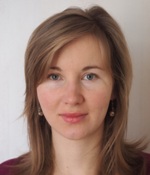
Kati Orru,
Estonian University of Life Sciences (Estonia)
Kati Orru is an environmental sociologist, who recently finished her PhD at King’s College London. Her presentation focuses on the complex relationship between stakeholders and regulators in sustainable planning. She explores how the volatility and multiplicity of interests and interpretations of sustainability shape the ambiguous task of sustainable planning.
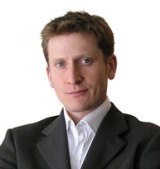 Marco Steinberg,
Marco Steinberg,
Finland’s Innovation Fund, Director of Strategic Design (Finland)

In addition to offering a quality living environment in terms of economic efficiency, interest in human-friendly and cost-effective solutions in urban planning are increasingly floating to the surface.
Kristiina Sipelgas,
Estonian Centre of Architecture (Estonia)
Kristiina Sipelgas has been a leader in architectural policy and the head of universal design principles. She concentrates in her report on the use of universal design solution planning in the urban environment and supporting the implementation of national activities.
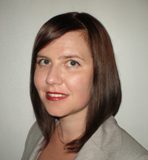 Liina Joller
Liina Joller
University of Tartu (Estonia)
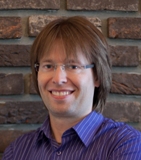
Energy efficiency can be well measured, but this is only one aspect of the impact on the environment. This raises the question: just how ‘green’ is the building being approved by the broker?
Lauri Lihtmaa,
Estonian University of Life Sciences, Researcher (Estonia)
Lauri Lihtmaa’s research is in urban planning, ecological efficiency, green building, impact assessment and quality management. He has a Master’s degree in engineering science and is currently studying for his PhD.
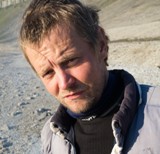 Building becoming ‘greaner’ is a natural process taking into account the limited amount of resources. The alternative eco-buidling using natural materials and aesthetics is becoming a mainstream trend. What will happen next? What will become the next mainstream trend?
Building becoming ‘greaner’ is a natural process taking into account the limited amount of resources. The alternative eco-buidling using natural materials and aesthetics is becoming a mainstream trend. What will happen next? What will become the next mainstream trend?
Rene Valner,
architect (Estonia)
Rene Valner has designed and built houses using local energy-saving materials, joining the materials of eco-building and aesthetics-orientated mainstreaming to energy efficiancy, healthy inner climate, technological simplicity and the environmental aspects of the life cycle of the building.

Jaanus Tamm,
Tartu City Government, Traffic Control Service, Project Manager (Estonia)
Jaanus Tamm will give a report focusing on the City of Tartu’s experience in the Baltic Biogas Bus project – its problems and bottlenecks and its chances of success. He will give an overview of green urban development in Estonia and of possibilities and obstacles in the production of biogas as an environmentally friendly fuel.
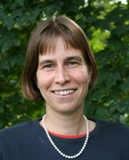
Around 40% of all new cars sold in Stockholm in 2010 were clean cars/low emission cars. Now we are trying to repeat this with electric vehicles!
Eva Sunnerstedt,
Stockholm City Government, Clean Vehicles and Fuels Programme, Project Manager (Sweden)
Eva Sunnerstedt will talk about the Stockholm Clean Vehicle Strategy that has been developed over the years since its inception in 1994. Several different fuels and techniques will be showcased, starting with heavy vehicles operating in fleets (such as public transport buses and waste trucks) and moving on to city- and company-owned fleets of cars. The current work on electric vehicles will be the focus of the end of the presentation.
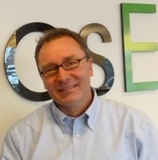
Henrik Isaksen,
ChoosEV AS, Chairman of the Board (Denmark)
Henrik Isaksen will present ChoosEV’s business model including partner programs, infrastructure setup and primary test results from ChoosEV’s EV test project.
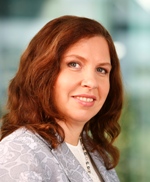 Estonia has taken a big step closer to the future: the ELMO programme gives a possibility to travel by EVs – less noise and less pollution, cleaner cities an cleaner environment.
Estonia has taken a big step closer to the future: the ELMO programme gives a possibility to travel by EVs – less noise and less pollution, cleaner cities an cleaner environment.
Mirja Adler,
KredEx, Head of the Housing Division (Estonia)
The presentation gives an overview on the Estonian programme for electromobility (ELMO). ELMO supports purchasing of EVs, the programme gives 507 EVs into the use of social workers, and it enables to build a nationwide infrastructure of chargers for EVs in Estonia as the first country in the world.


 Rohevik Twitteris
Rohevik Twitteris

